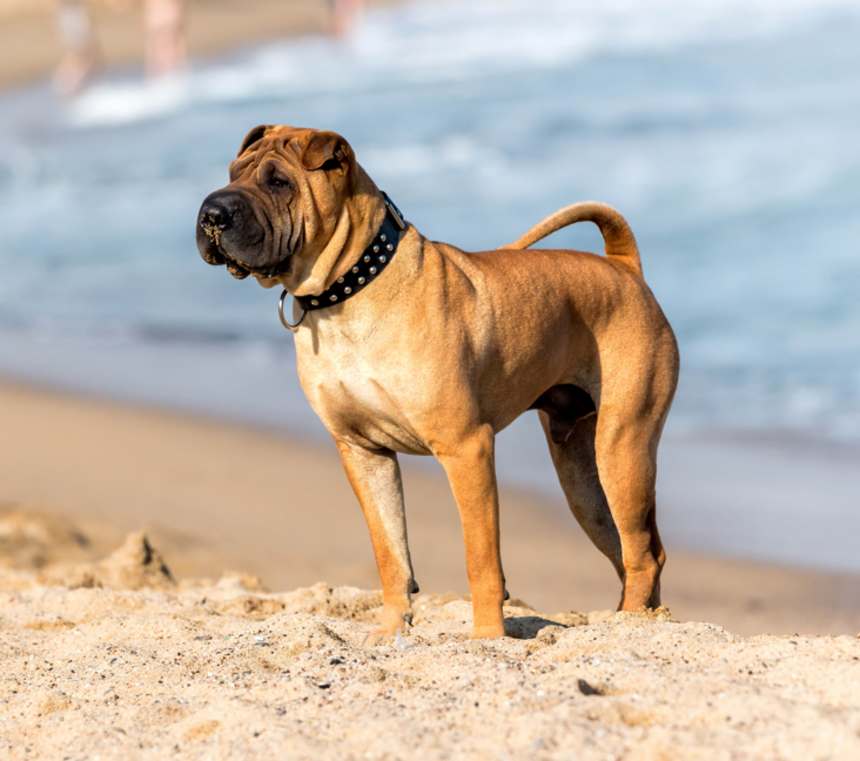Do Shar-Pei dogs have health problems?

Yes, Chinese Shar-Pei are prone to a number of health problems, including:
- Hip dysplasia: Like many large and medium-sized breeds, Shar-Pei are prone to hip dysplasia, a genetic condition where the hip joint does not develop properly, leading to pain and lameness.
- Elbow dysplasia: Elbow dysplasia is a developmental abnormality of the elbow joint that can cause lameness and arthritis in affected dogs.
- Skin problems: The Shar-Pei’s distinctive wrinkled skin can develop problems such as dermatitis and pyoderma (bacterial skin infections). Regularly cleaning and drying the skin folds is essential to prevent these issues.
- Eye conditions: Chinese Shar-Pei are predisposed to certain eye conditions, including entropion (eyelids rolling inward), ectropion (eyelids rolling outward), glaucoma, retinal dysplasia, sudden acquired retinal degeneration (SARDS), and cherry eye (prolapsed third eyelid).
- Familial Shar Pei fever (FSF): This congenital disease can lead to fluid accumulating around the ankles and sometimes to renal failure.
- Autoimmune diseases: Shar-Pei are predisposed to certain autoimmune diseases, including amyloidosis, a condition where abnormal protein deposits accumulate in the organs.
- Respiratory problems: Some Shar-Pei experience brachycephalic airway syndrome due to their short muzzle and flat face. This can lead to difficulty breathing, especially in hot or humid weather.
- Cancer: Like many breeds, Shar-Pei are susceptible to various types of cancer, including mast cell tumors, hemangiosarcoma, and lymphoma.
- Patellar luxation: Also known as slipped kneecaps, patellar luxation is a common problem in many dog breeds. It occurs when slight abnormalities cause the knee joint to slide in and out of place. This can cause pain and occasional lameness. Surgical treatment is available for severe cases, although many dogs lead normal lives without treatment.
- Gastric dilatation-volvulus (GDV): Also known as bloat, GDV is a life-threatening condition that occurs when the stomach fills with gas and twists on itself, cutting off blood flow to the stomach and other organs. GDV requires emergency veterinary treatment and can be fatal if not treated promptly.